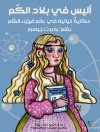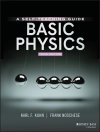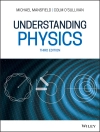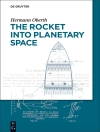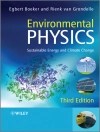Information and Its Role in Nature presents an in-depth interdisciplinary discussion of the concept of information and its role in the control of natural processes. After a brief review of classical and quantum information theory, the author addresses numerous central questions, including: Is information reducible to the laws of physics and chemistry? Does the Universe, in its evolution, constantly generate new information? Or are information and information-processing exclusive attributes of living systems, related to the very definition of life? If so, what is the role of information in classical and quantum physics? In what ways does information-processing in the human brain bring about self-consciousness? Accessible to graduate students and professionals from all scientific disciplines, this stimulating book will help to shed light on many controversial issues at the heart of modern science.
Tabella dei contenuti
Elements of Classical Information Theory.- Elements of Quantum Information Theory.- Classical, Quantum and Information-Driven Interactions.- The “Active” Role of Information in Biological Systems.- The ‘Passive’ Role of Information in Physics.- Information and the Brain.
Circa l’autore
Juan G. Roederer is professor of physics emeritus at the University of Alaska-Fairbanks, and adviser at the Abdus Salam International Centre for Theoretical Physics. 1952 DSc. University of Buenos Aires; 1966 professor of physics at that university; 1967-1977 professor at the University of Denver, Colorado; 1977-1986 director of the Geophysical Institute of the University of Alaska, then professor until 1993. Research fields: space physics, psychoacoustics, information theory and science policy; author of over 250 articles in scientific journals. His books ‘Mecanica Elemental’ (Eudeba, Buenos Aires), ‘Dynamics of Geomagnetically Trapped Radiation’ and ‘Physics and Psychophysics of Music’ (both at Springer-Verlag) are ‘classic’ university textbooks in their fields; the latter was translated into German, Spanish, Portuguese and Japanese. Roederer is a member of the Academies of Science of Austria, Argentina, and the Third World Academy of Sciences.
Aus den Rezensionen:
‘… eine Buchreihe … Begründet und redaktionell betreut von Physikerin Angela Lahee, hat sie das Ziel, den Lesern eine Erweiterung und Reflexion der eigenen Wissensgrenzen zu ermöglichen. … Die zentrale Rolle der Information in der Natur – Quantentheorie, Biologie, Genetik und Hirnforschung – erörtert der Physiker Juan G. Roederer … außerordentlich lesenwert. ‘was wir brauchen, ist nicht der Wille zu glauben, sondern der Wille herauszufinden‘ … Die interdisziplinäre, unkonventionelle Frontiers Collection … hat ihn sogar zu ihrem Leitspruch erhoben.’
(Rüdiger Vaas, in: Naturwissenschaftliche Rundschau, 2007, Vol. 60, Issue 4, S. 212 ff.)


